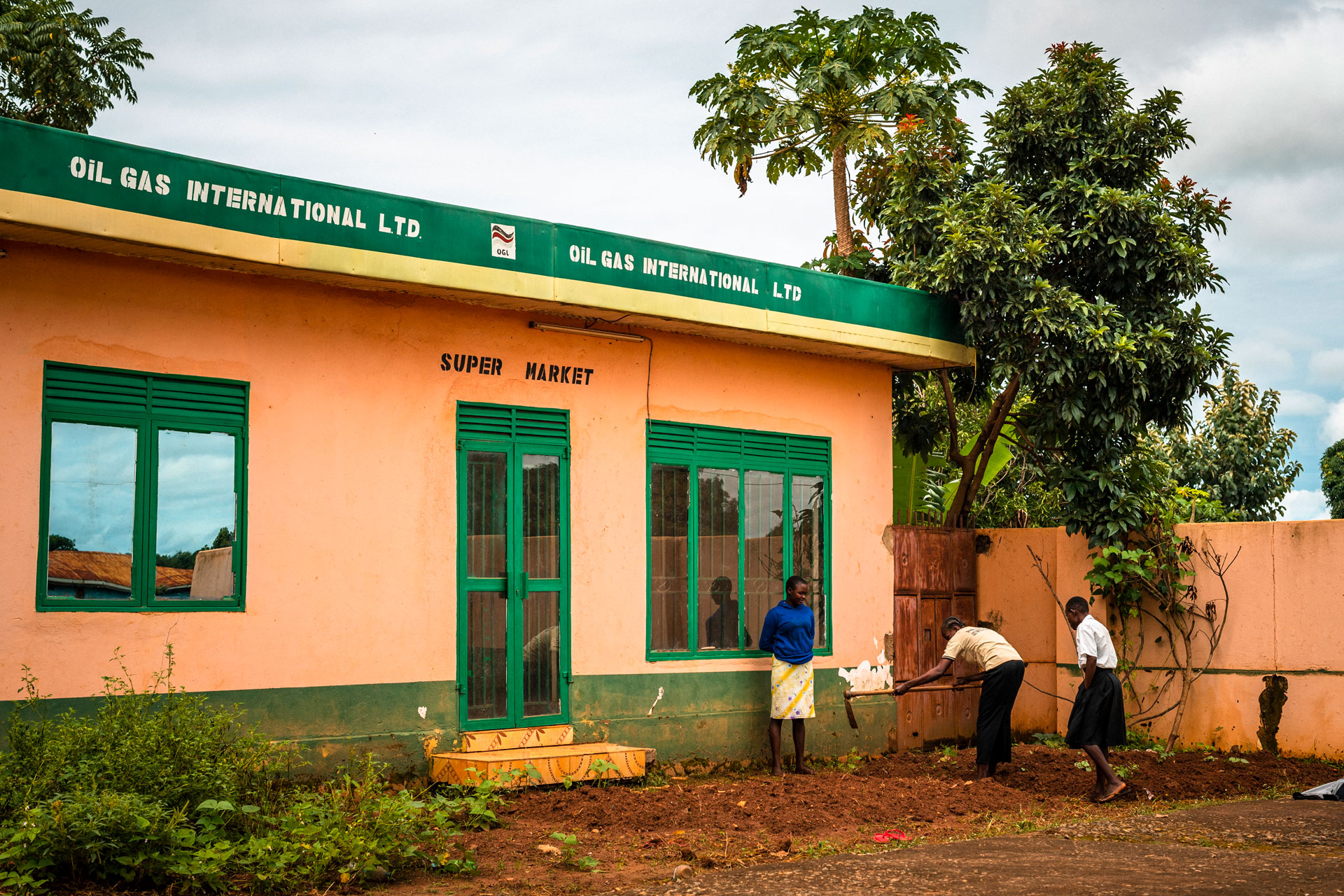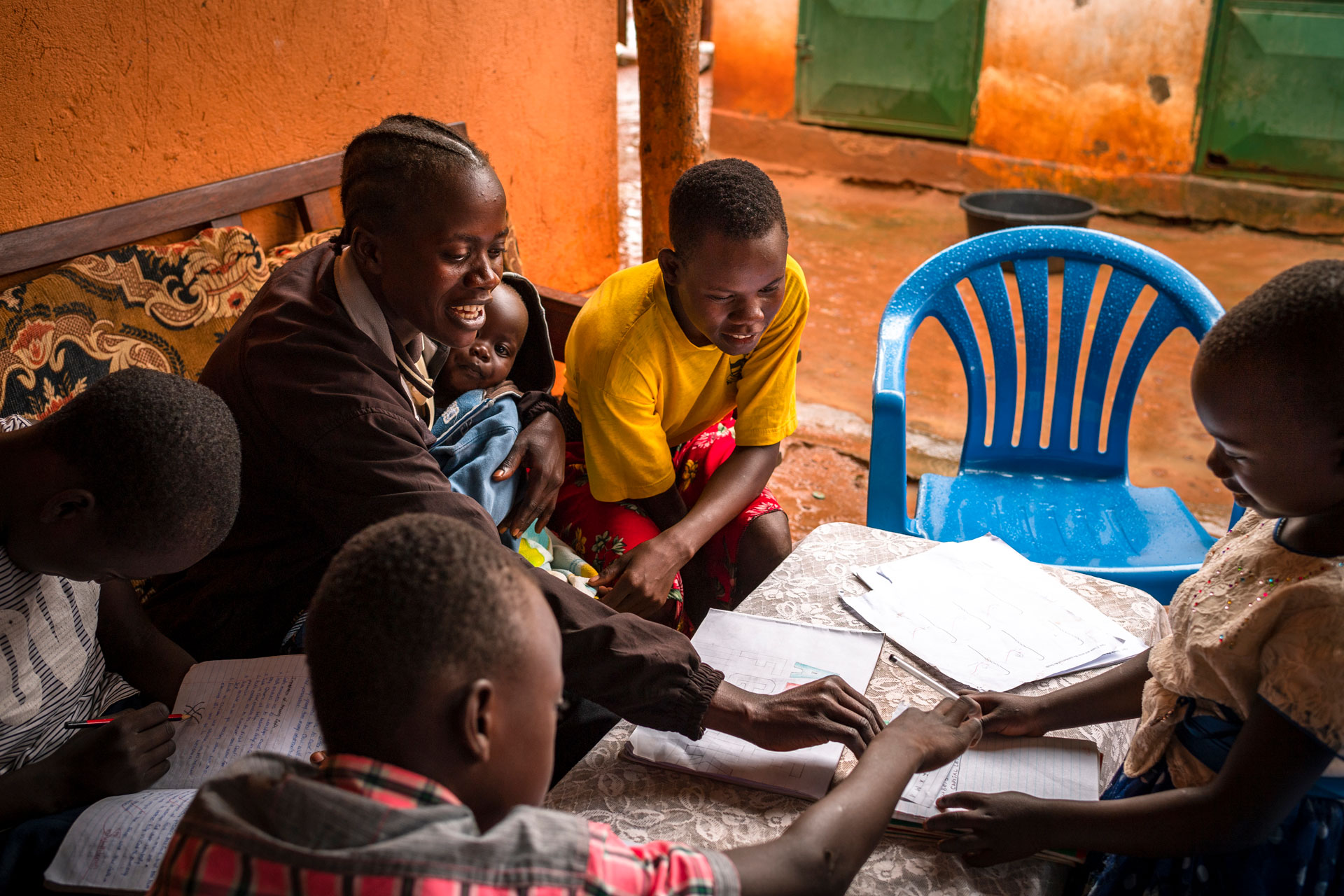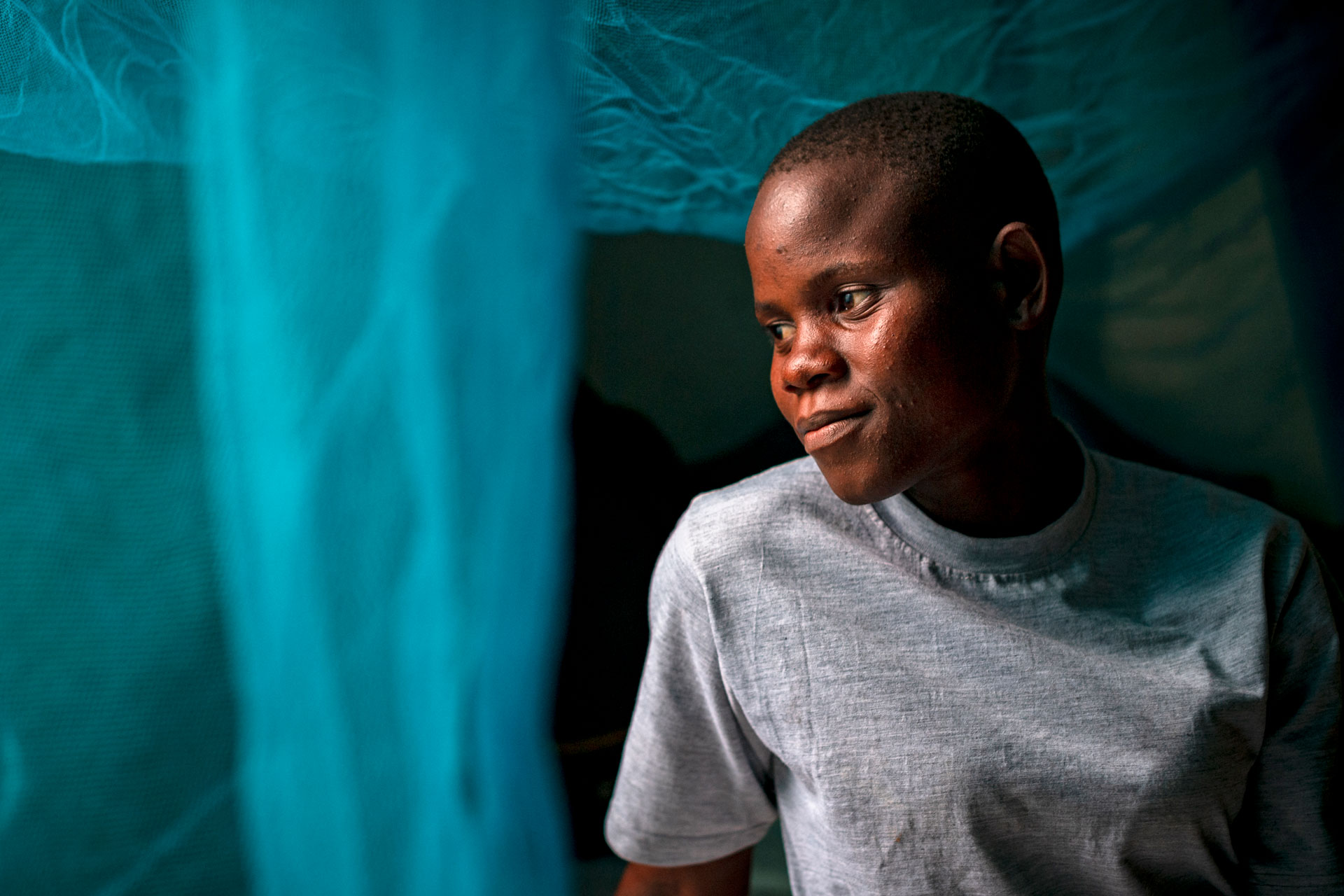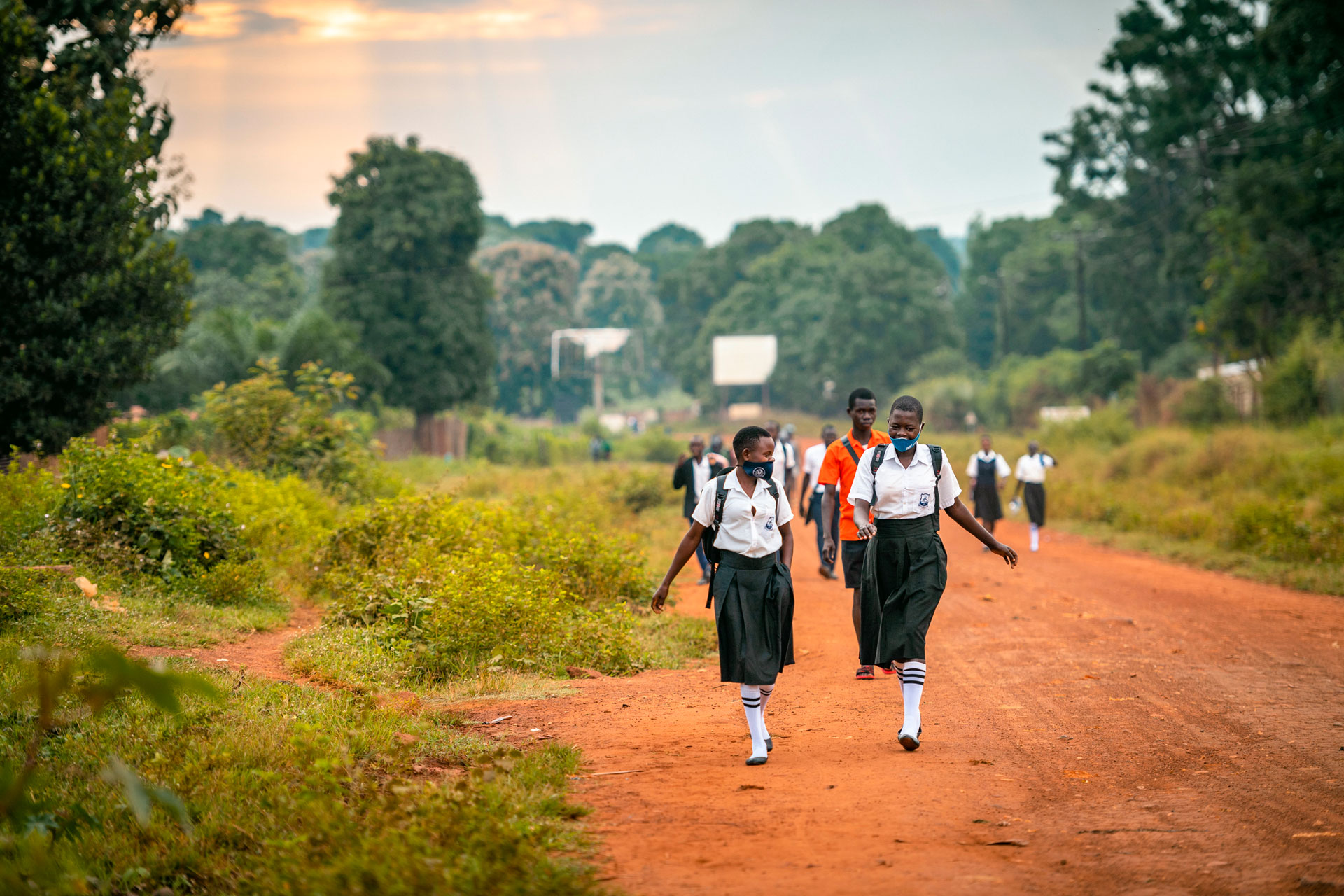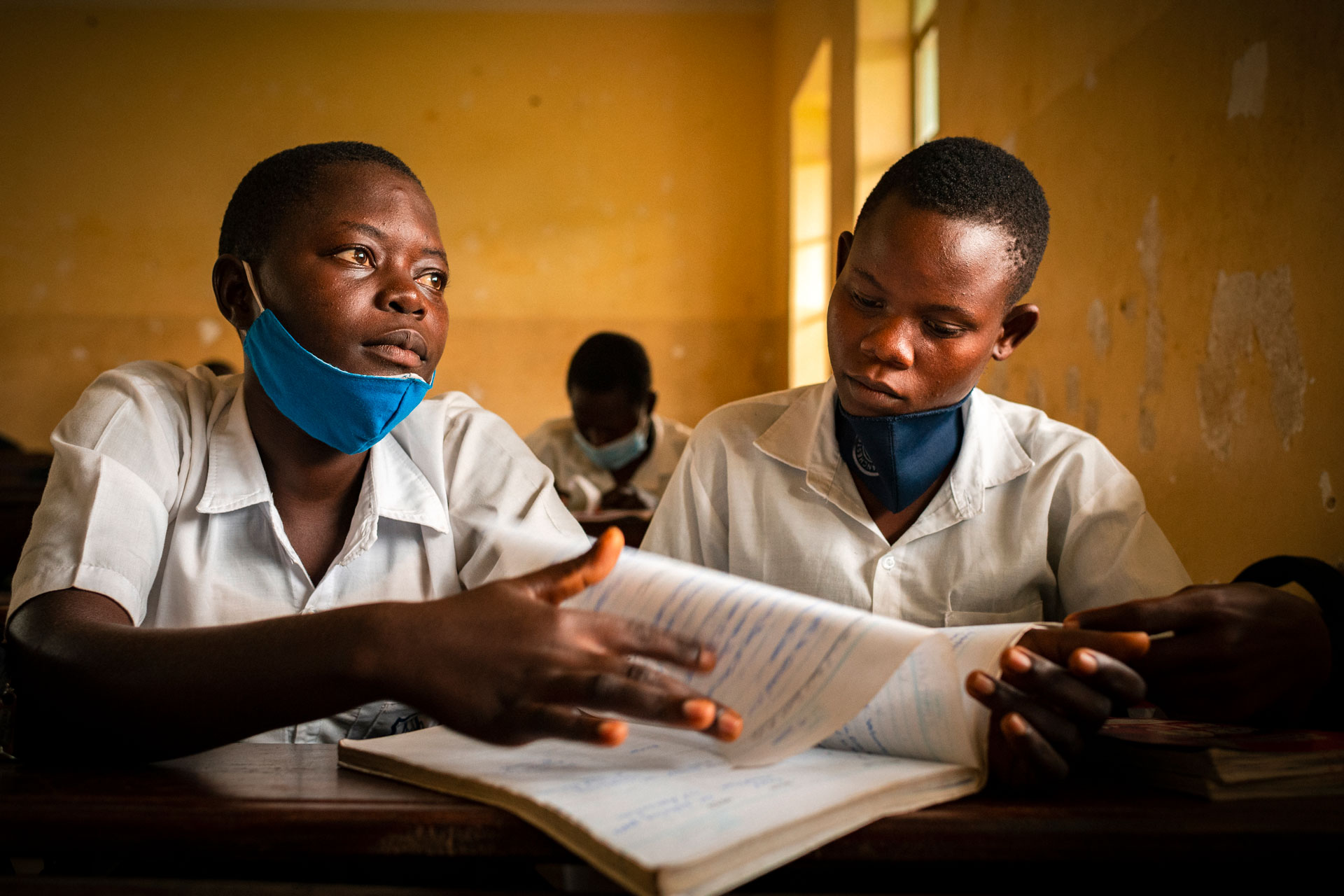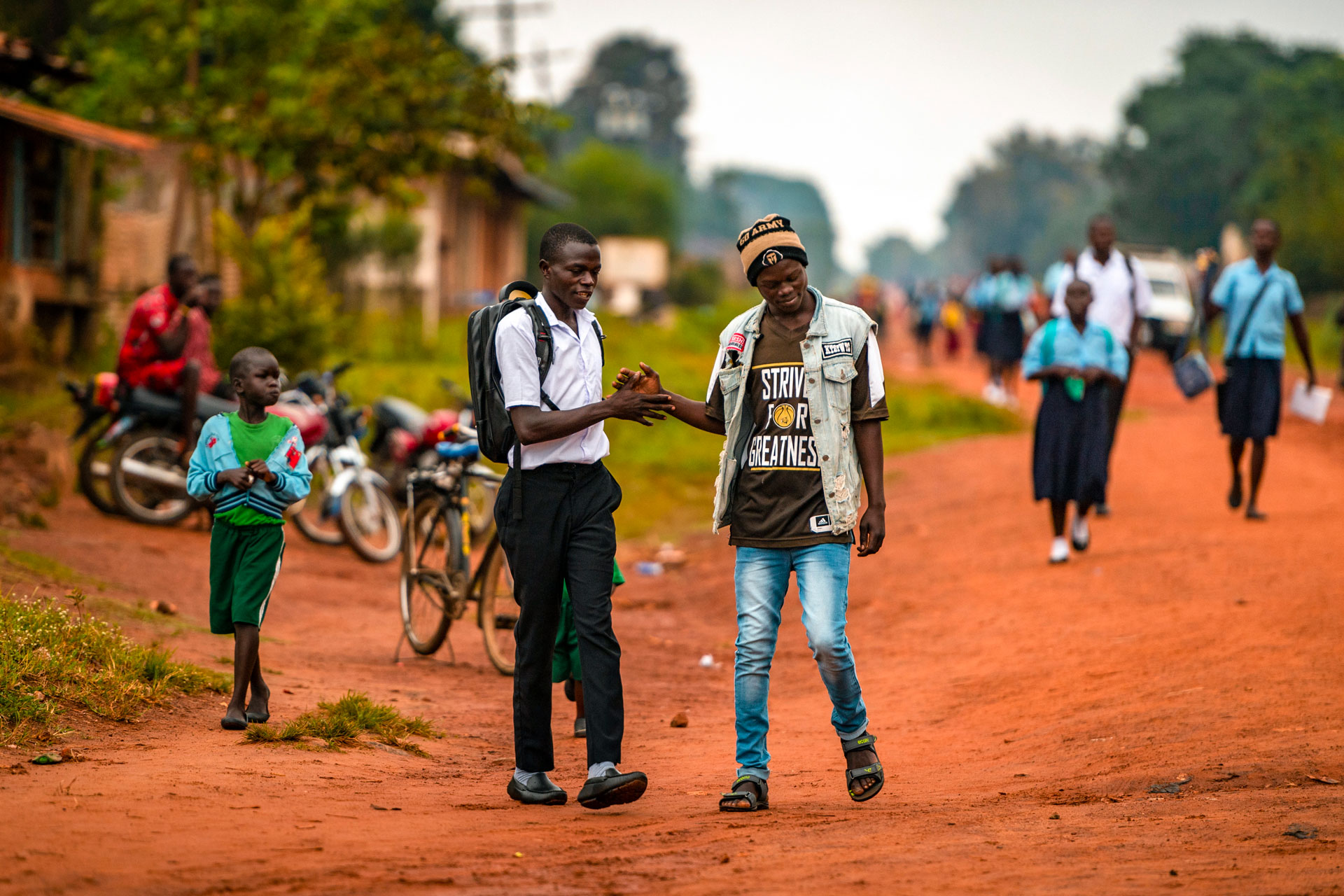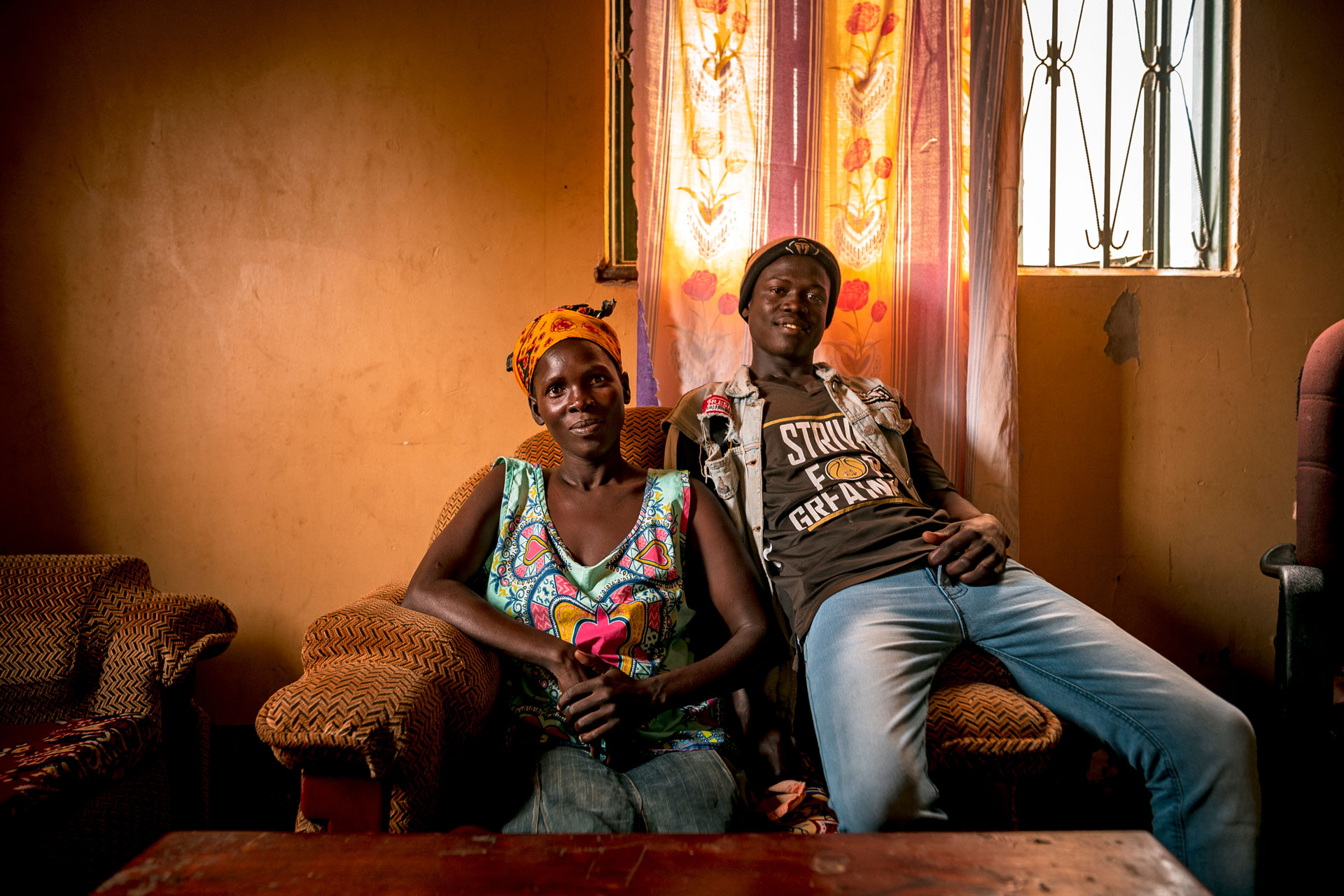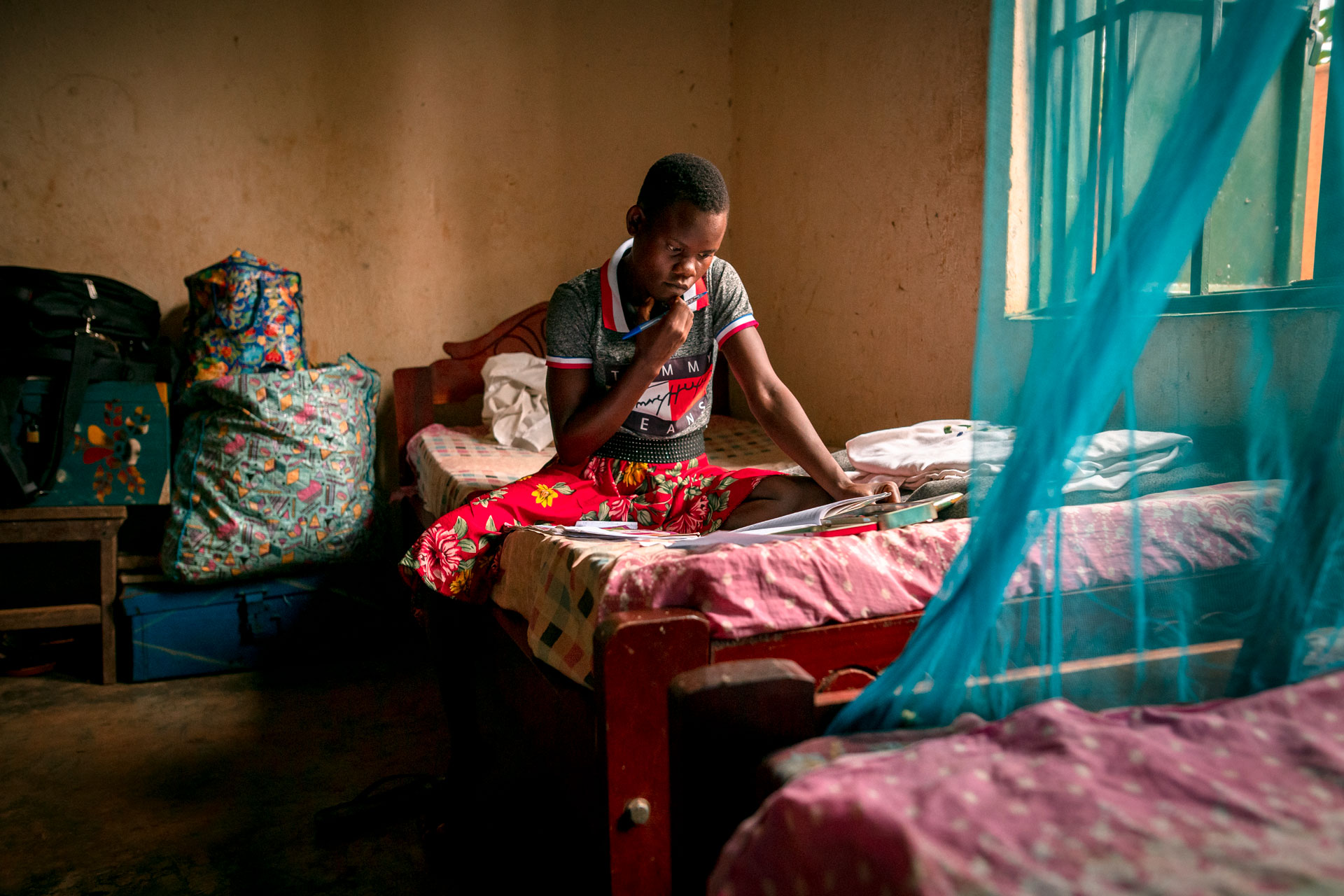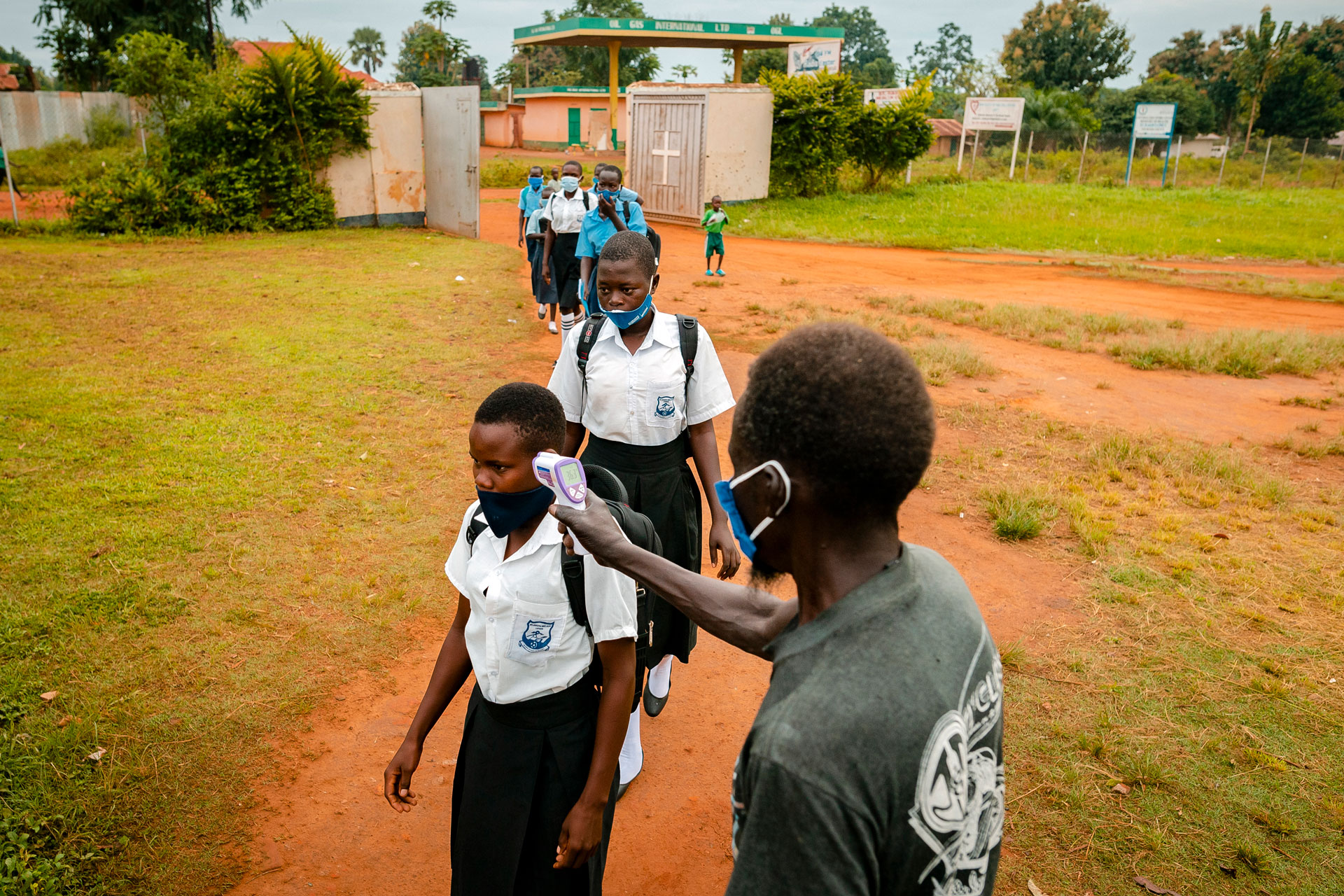Dreams at stake – 21-year-old Rose had just two weeks of school before lockdown hit
The covid-19 pandemic has derailed the lives of young people in South Sudan, a country recovering from a civil war. Rose, living in Yei, finally has a new opportunity to pursue her dreams.
WILD VEGETATION surrounds crumbled, abandoned mud huts. Scattered around, there are the remains of cars, stripped of wheels and other removable parts. Empty houses are missing their most valuable parts: tin roofs and windows.
The surge in returnees that accelerated prior to the Covid-19 pandemic hasn’t repaired the damages caused by the 2016 civil war around the city of Yei. The sight is still stomach-churning for those returning to the region, says 29-year-old Viola Jabu. Life in Yei began completely anew, without a home or work.
“When we decided to return, I was afraid there’d be no one in Yei,” Viola Jaby says. She began the journey home from a Ugandan refugee settlement with nine children and adolescents in February 2020, just before the pandemic hit.
“I was relieved to see plenty of life on the streets. However, our home had been destroyed.”
Viola Jabu and her family have settled behind an abandoned petrol station on a busy street. The suitcases and bags, in which the family has packed their entire life, are neatly piled in the children’s bedroom. The parents sleep in a storage room, lit by the light coming in through a tiny window.
“We returned from Uganda because life as a refugee was tough. It was difficult to find food and work and the children were often ill. My husband lived here already and told us that it’s safe now,” Viola Jabu tells.
“We couldn’t have imagined that we’d have to face a pandemic, too.”
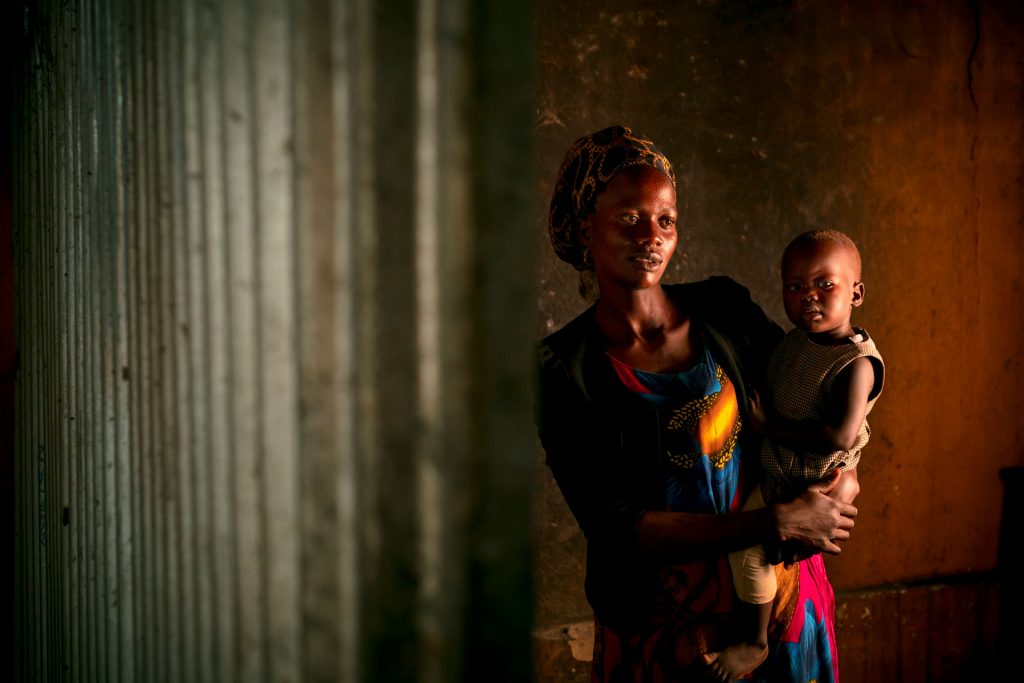
Over a year without school
Across the street is St. Joseph’s s School. There, 21-year-old Rose Night began her second year as an upper secondary school student. Rose lives with her uncle Woi Wilson, Viola Jabu’s partner. Rose’s parents abandoned her when she was a child; her father disappeared, and her mother moved to the Democratic Republic of the Congo.
Wearing her school uniform, Rose has patiently listened to our conversation for over an hour. Then she can no longer wait.
“When are you going to ask me something?” she asks. It’s uncommon for students to volunteer for interviews unprompted.
“School has taught me that one must be courageous and study a lot, so that it’s possible to make one’s own decisions in life. With the help of education, you can find work and look after yourself,” she quotes her teachers.
Rose started school at the age of nine with support from her uncle, and her dream is to become a lawyer. Uncle Woi Wilson hopes Rose will one day study at a university.
Rose’s schooling already came to a halt once when the family fled to Uganda. After returning to South Sudan, she was in school for just two weeks before the closure.
“We were told to stay at home and be patient, but there was nothing to do. I was sad.”
In South Sudan, the opportunities to switch to remote learning were non-existent, which is why numerous children and adolescents had their schooling suspended for over a year. In a country that has already suffered from a civil war, it is estimated that 2.2 million children didn’t go to school before the pandemic, and according to an estimate by UNICEF, the pandemic doubled the number to 4.3 million.
Viola Jabu and Woi Wilson organised home schooling for the children, so that they wouldn’t forget the importance of education in pursuing their dreams. Everywhere in the world, the lives of the young are full of temptations. Rose kept her chin up.
“Young people started to act up, run off from home at night, party and drink and consume other drugs. I didn’t do like the others and that’s why some distanced themselves from me,” Rose says.
“Young people no longer knew where their lives were headed.”
A new kind of threat
Yei is the third largest city in South Sudan and strategically important for commerce due to its location near the borders to both the Democratic Republic of the Congo and Uganda.
The county surrounding the city is known as the granary of South Sudan, and in peacetime Yei can ensure the availability of food in the entire country.
The current peace agreement has been in force for over three years, yet outside the city there are still armed groups that haven’t signed it. The residents can’t go to the vast fields in the villages, so it’s common to see corn planted on roadsides all over the city.
Finn Church Aid (FCA) supports food security for returning migrants and their opportunities to earn a living with, for example, cash assistance. Tens of thousands of people have already returned from Uganda to star over in life, says Moses Habib, humanitarian coordinator at FCA.
“We’ve supported returning families with cash, so in the beginning they’re able to buy food, repair their homes and cover the costs of their children’s schooling,” he tells.
For years the residents of Yei have persisted in the face of various threats. On top of war, there is disease. A poster on the wall of a centre that registers returning migrants encourages getting vaccinated against polio. South Sudan is one of the few countries in the world in which the disease has been resurgent in recent years.
Another poster explains the symptoms of ebola and emphasises the importance of hand hygiene in stopping its spread. It resembles a newer poster next to it, which explains how to avoid catching Covid-19.
The most significant consequences of the pandemic are linked to livelihood and education. Globally, the UN estimates that the pandemic has pushed tens of millions of families to the brink of extreme poverty.
“Teachers had to find other jobs for when the schools were closed, and many students have had to support their families by working. We’re concerned that some of them won’t come back,” says Habib.
Work instead of school
18-year-old Samuel Ayki toils away at a vegetable plot with his two brothers. It’s only been two weeks since the beanie-wearing young man returned to Yei. Samuel spent the early stages of the pandemic as a refugee in Uganda, where school closures lasted for 80 weeks, longer than anywhere else in the world. Because of the restrictions on movement, the local market at the refugee settlement was closed, and Samuel’s mother Mary lost her income. Samuel was due to finish comprehensive school in spring 2020 and now he’s supposed to study at upper secondary level.
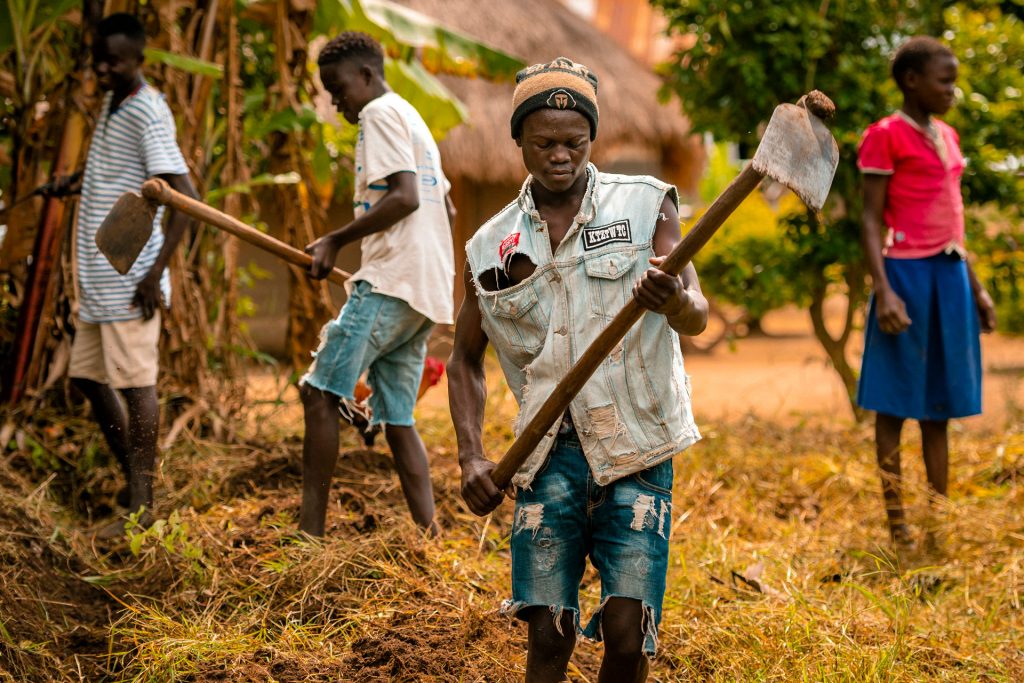
“Covid ruined my schooling. It feels like my brain became blunt because I wasn’t able to learn anything new,” Samuel says.
In South Sudan, schools reopened in May 2021. When a friend of Samuel’s went back to school in Yei, he encouraged Samuel to return home. However, all related costs, such as learning materials and school uniforms, were such a huge expense for a poor family that Samuel couldn’t afford them. On top of this, the family needed the money Samuel was able to make doing odd jobs here and there.
Samuel plans to save money to return to school. Work is difficult to find, as he’s been away from the city for a long time and the pandemic has impoverished businesses. “I’m sad seeing my friends and neighbours go to school, when I’m just looking for work or sitting at home. Sometimes I try to study on my own using the notebooks I brought back with me from Uganda,” Samuel tells.
Covid-19 puts girls’ schooling at risk
Having fewer and fewer opportunities for making a living has driven families to desperate decisions. Many girls have had to get married, because marriages benefit families financially.
Child marriages were a severe problem in South Sudan already prior to the pandemic; almost every other girl married underage, and now the number of child brides and teenage pregnancies has only gone up. Getting pregnant almost always means that the girl drops out of school, and the consequences are drastic when it comes to continuing education. Rose’s best friend didn’t return to the classroom when the schools reopened their doors.
“She decided to get married. Now she has a baby and can’t return to school. I don’t know what that means to her future, but I miss her,” Rose says.
Working as a grocer, uncle Woi Wilson’s livelihood has been dependent on the road running to the capital Juba and the neighbouring Uganda. Due to the pandemic, the traffic of goods slowed down, resulting in less income for sellers and higher prices for food. With the help of cash assistance from FCA, the family was able to buy food and support the continuation of the children’s schooling. After a long struggle, Rose is preparing for her first exam week in 18 months.
Many other enthusiastic students are waiting by the gates of St. Joseph’s School, where a guard takes their temperature and checks everyone is wearing a face mask. Fortunately, there’s one to spare for a girl who has left hers at home.
“At school I feel safe. Learning brightens my mind and give meaning to my days,” beams Rose.
Text: Erik Nyström
Photos: Antti Yrjönen
Translation: Anne Salomäki
Finn Church Aid (FCA) works in the most vulnerable communities in South Sudan, supporting the food security and livelihood opportunities for families. In autumn 2021, a programme was started to offer cash assistance to help children and adolescents who’ve returned from Uganda to cover the cost of their schooling. Comprehensive schools receive support in organising schooling. Emergency help is offered to disaster victims regardless of age, background or gender.
